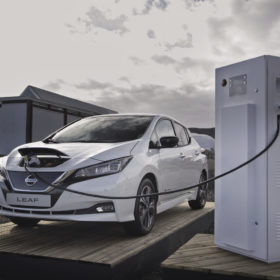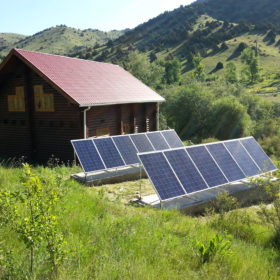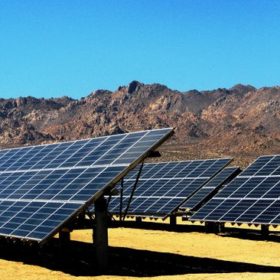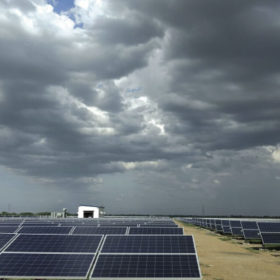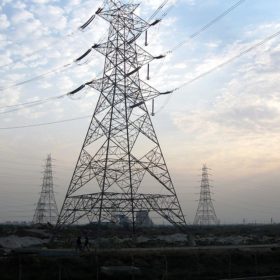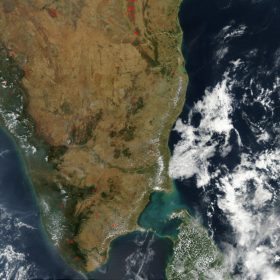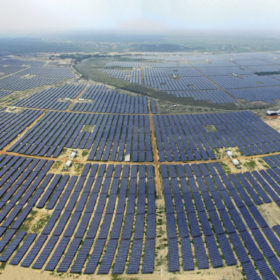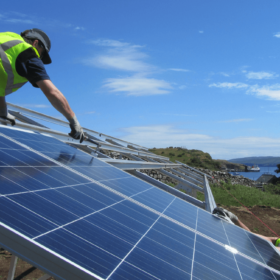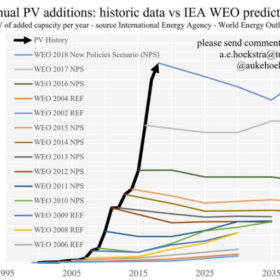Trans-Pacific partnership aims to accelerate green hydrogen uptake
Australia’s national science agency CSIRO and Canada’s University of British Columbia have announced a memorandum of understanding aimed at accelerating clean hydrogen technologies.
Global electric car fleet may reach 250 million by 2030
The International Energy Agency says more than 2 million electric vehicles hit the road last year, to take the total to more than 5 million. The agency has stressed the importance of public policy, charging infrastructure and a fall in costs for continued EV uptake, and says up to 43 million EVs could be sold in 2030.
Solar the key to progress on global access to electricity
A tracking report from five major international agencies finds the world is lagging behind sustainable development goals for 2030. While more effort is needed to reach some of the world’s poorest populations, though, notable progress has been made in reducing the electrification deficit, thanks to off-grid solar and minigrids.
Global energy investment held steady above $1.8tln in 2018 — IEA
Global investment in energy hit roughly $1.8 trillion in 2018, broadly similar to levels reported in the preceding year, according to a new report by the International Energy Agency. However, spending on renewables and energy-efficiency initiatives have slowed and the agency notes that its findings are at odds with global efforts to achieve targets set under the Paris Agreement.
IEA warning against stagnation of renewables
After two decades of growth, the amount of newly installed renewable energy capacity is no longer rising and, despite a 7% growth in electricity generation from clean energy sources, global energy-related carbon emissions have risen 1.7%.
China, US and India drive energy demand up by 70% — IEA
Global electricity demand rose by 4% in 2018, nearly twice as fast as overall energy demand, as consumption edged up by 2.3%, according to a new report by the International Energy Agency (IEA). Renewables accounted for 45% of the growth in generating capacity.
The promise of a 100% renewable energy world
The oldest solar organization in the world, the International Solar Energy Society, dates back to 1954. President David Renné tells pv magazine about India’s solar dreams, the next best thing in solar technology and what renewables hold for the world’s future.
A call to action
Solar PV has come a long way as a power generation technology. As highlighted in SolarPower Europe’s Global Market Outlook for 2018 to 2022, solar added 98 GW of net generation capacity last year, eclipsing all other forms of electricity generation. But solar needs to do a lot more, and to do it very soon if we want to limit greenhouse gas (GHG) emissions and keep global warming to below 1.5°C from pre-industrial levels.
Islands ditching diesel in favor of renewables
The U.K. is helping islands in Scotland and the Caribbean, Pacific and Indian oceans, make the switch from dirty diesel generators to renewables. In the former, community-owned renewable systems are ensuring 24 hour energy supply, while in the latter, a new renewable energy analytics platform is set to help identify the optimum energy mix for six islands.
IEA versus the reality of solar PV
In the recently released World Energy Outlook, the International Energy Agency (IEA) foresees a steady decline in the global expansion of PV to 2035. In response, Dutch researcher Auke Hoekstra has updated his graphic, IEA versus reality in solar PV.

